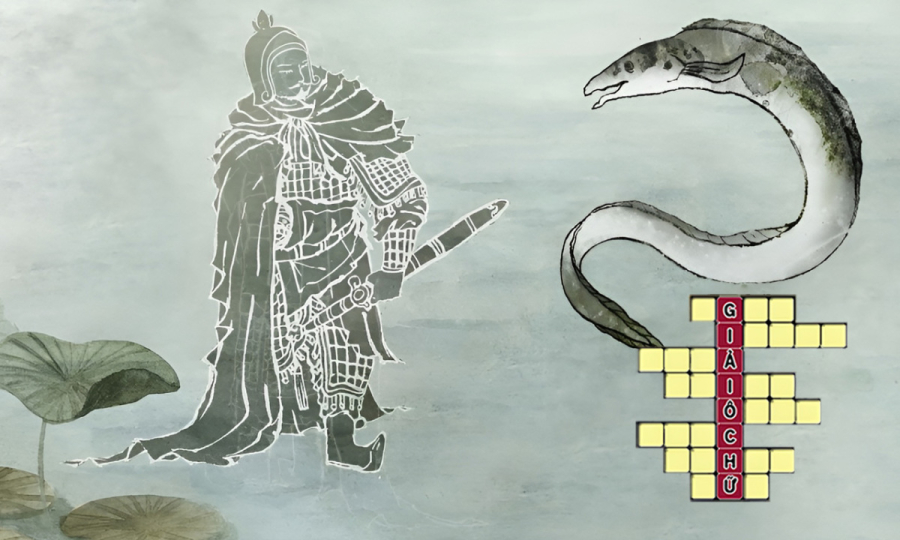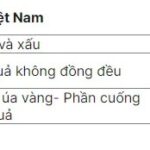The Tran clan is the second most populous clan in Vietnam, after the Nguyen clan. According to the 2022 Statistics on Vietnamese Surnames, the Tran clan accounts for 10.9% of the country’s population. But what many may not know is that this clan has a lot of unique characteristics.
The first generations of the Tran clan were named after familiar fish species. For example, Tran Ly (carp), Tran Thua (pufferfish), Tran Lieu (climbing perch), Tran Canh (sicklefish), etc.
The reason for the Tran clan’s naming convention based on fish species is explained by their traditional occupation and geographical location. The Tran clan primarily resided in coastal areas near river mouths and engaged in fishing and netting. According to Vu Ngoc Khanh’s book, “Vietnam – A Treasury of Wild History,” around the 12th century, the Tran clan began to make a living from fishing and gradually prospered, gaining influence under various dynasties, eventually establishing their own brilliant dynasty.

The One-of-a-Kind Clan in Vietnam: Descendants Named After Fishes
Tran Thi Dung (birth year unknown), originally named Ngu (tuna), was renamed Dung when she became the empress of King Ly Hue Tong. She was the last empress of the Ly dynasty and the mother of Ly Chieu Hoang, the only female emperor in Vietnamese history.
When the Ly dynasty was overthrown and the Tran dynasty was established, Empress Tran Thi Dung was deposed. Out of respect for her former status, King Tran Thai Tong bestowed upon her the title of Linh Tu Quoc Mau, an alternative title for empress.
Linh Tu Quoc Mau later remarried to Grand Tutor Tran Thu Do, a relative. The “Dai Viet Su Ky” (Historical Records of Great Viet) states, “It was then known that the heavens created Linh Tu to establish the Tran dynasty.” She was revered by the people, who built a temple in her honor and addressed her as “Ba Chua Ngu” (Tuna Lady).
Tran Thu Do is considered the mastermind behind the establishment of the Tran dynasty. Holding the position of Dien Tien Commander under King Ly Hue Tong, Tran Thu Do gradually seized power for his clan. He forced King Hue Tong to abdicate and pass the throne to Ly Chieu Hoang. Along with Tran Thua, he arranged a marriage between Tran Canh (Tran Thua’s son) and Ly Chieu Hoang, eventually forcing her to abdicate and pass the throne to Tran Canh. Thus, Tran Canh ascended the throne as King Tran Thai Tong, marking the beginning of the Tran dynasty in the late 1225.
Tran Du Tong (1336 – 1369) was the seventh emperor of the Tran dynasty. When King Hien Tong fell ill and passed away at the age of 23, without an heir, Upper King Tran Minh Tong enthroned his brother, Tran Hao (later known as Tran Du Tong).
Tran Du Tong ascended the throne in 1341 at the age of five, taking the reign name of Thieu Phong. Initially, Upper King Tran Minh Tong handled state affairs, and it was only in the latter part of his life that King Tran Du Tong began to rule independently.
He was known as the most indulgent king in Vietnamese history, obsessed with gambling and neglecting state affairs, which led to the decline and loss of power of the Tran dynasty.
Over the centuries, the Tran clan has made significant contributions to Vietnam. They have produced numerous national heroes, renowned figures, and a powerful dynasty during the feudal era.
The Ultimate Northwest Mountain Passes: A Breathtaking, Otherworldly Adventure and a True Rider’s Challenge
Unveiling the mysteries of Northwest Vietnam, this journey is not just about exploring unique ethnic villages but also about conquering the four majestic mountain passes. From the mighty “King of Passes”, O Quy Ho, to Ma Pi Leng, the gem of Ha Giang, each pass has its own captivating stories and breathtaking sceneries to offer.


































